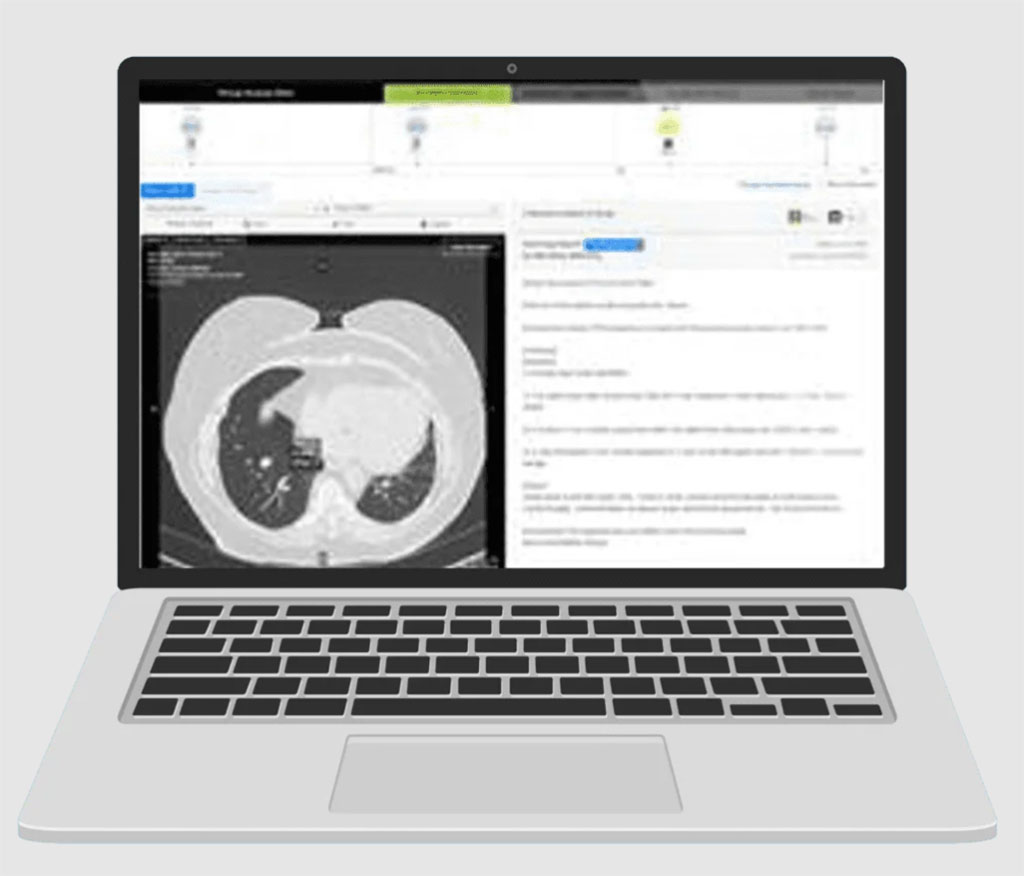Breakthrough AI Platform Predicts Likelihood of Lung Cancer by Analyzing CT Scans
Posted on 30 Mar 2023
Lung cancer is responsible for the most cancer-related deaths globally. The current survival rate after five years is a mere 20%, largely due to patients being diagnosed at advanced stages (Stage III or IV) after symptoms have manifested. In contrast, small tumors detected at Stage IA have a survival rate of up to 90%. There is a need for an effective strategy to identify more small, pre-symptomatic lung cancers early on in the two million patients in the United States annually who incidentally have a lung nodule detected during chest CT scans ordered for other purposes, such as emergency room or cardiac scans.
The current protocol requires monitoring patients for one to two years to determine the malignancy of a lung nodule. However, the majority of patients (over 60%) fail to receive the recommended follow-up, severely limiting opportunities for early diagnosis and treatment. For those who do receive proper monitoring, multiple imaging scans and biopsies are often necessary, which can result in unnecessary invasive procedures such as surgical biopsies and lung resections before a definitive diagnosis is reached. Now, a new artificial intelligence (AI) tool is designed to solve this problem by allowing pulmonologists to identify and track patients with suspicious lung nodules and make informed decisions regarding clinical management.

Optellum Ltd.’s (Oxford, UK) Virtual Nodule Clinic software incorporates a clinically-validated Lung Cancer Prediction (LCP) score to enable clinicians to more accurately evaluate the risk of lung cancer and make optimal clinical decisions for patients. This AI tool is designed to address the problem of missed opportunities for early intervention and treatment by helping pulmonologists identify and track at-risk patients with suspicious lung nodules. The LCP score is computed from 3D pixel patterns in standard CT images, which are already widely available in modern hospitals. By training on over 70,000 CT scans, Virtual Nodule Clinic can predict the likelihood of lung cancer and classify patients into high-risk, intermediate-risk, or low-risk categories. This technology helps reduce unnecessary biopsies for low-risk patients while enabling timely biopsies and treatment for high-risk patients with cancerous nodules. Additionally, this software reduces the need for multiple imaging scans and invasive procedures, thereby improving patient outcomes.
The use of Optellum's Virtual Nodule Clinic by physicians has demonstrated an improvement in diagnostic accuracy and clinical decision-making. Optellum's LCP has undergone extensive validation in multi-center studies led by co-authors of clinical guidelines, and consistently outperformed conventional risk prediction models recommended in current clinical guidelines. These models are considered state-of-the-art in classifying nodules as low, intermediate, or high risk. For instance, one independent validation study, led by physicians, revealed that the AI accurately reclassified indeterminate nodules into high- and low-risk categories in over one-third of cancers and benign nodules. This demonstrates its potential for accelerating lung cancer diagnosis and reducing invasive biopsies and surgeries on patients without lung cancer, compared to the current standard of care.
Related Links:
Optellum Ltd.














